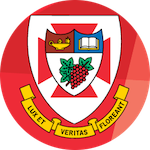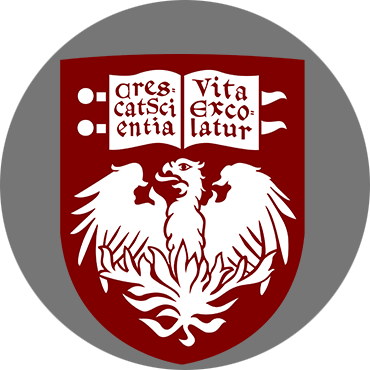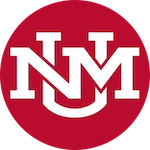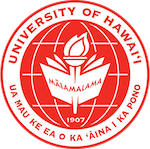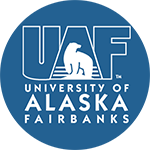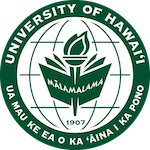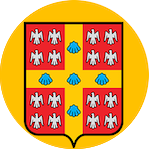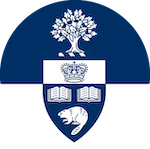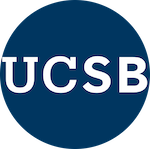Assistant Professor (Tenure-Stream) – Indigenous Digital Arts, Culture & Media
The property
Department of Arts, Culture & Media
University of Toronto Scarborough (UTSC)
PLEASE NOTE: This posting has been extended. Review of applications will begin on April 27; however, applications will be accepted until the position is filled.
Description
The Department of Arts, Culture and Media (ACM) at the University of Toronto Scarborough (UTSC) invites applications for a full-time tenure-stream appointment in Indigenous Digital Arts, Culture, and Media. The appointment will be at the rank of Assistant Professor, with an expected start date of July 1, 2023, or shortly thereafter.
Requirements
Candidates must have a terminal degree: either an MFA or a PhD in Communications; Humanities; Indigenous Studies; Information Studies; Journalism Studies; Media Studies; Social Sciences; Visual and/or Performing Arts or a related field, with a demonstrated record of excellence in research and teaching. Candidates with an MFA should have the degree in hand by the time of application. Candidates with a PhD must have the degree in hand by the time of appointment, or shortly thereafter.
Preference will be given to candidates who self-identify as Indigenous. Recognizing that there are a variety of terms that potential candidates may use to self-identify, the University uses the term “Indigenous” in this search, which forms part of the University of Toronto's response to Canada's Truth and Reconcilliation Commission, to encompass the people of Turtle Island, including those who identify as First Nations, Métis, Inuk (Inuit), Alaska Native, Native American, and Native Hawaiian people.
For this important hire, the University is partnering with BIPOC Executive Search. Individuals seeking more information and guidance during the application process can email Candice Frederick or Jason Murray at cfrederick@bipocsearch.com.
We are seeking candidates who have a strong record of engagement in Indigenous Digital Arts, Cultures and/or Media. This research and work might take the form of one or more of the following areas: Indigenous storyworks; Indigenous ways of knowing and making in the visual, oral, narrative, media or sound-based arts; new media; curation; arts management; performance; music; journalism; network, data and spectrum sovereignties.
We welcome applications from candidates who demonstrate a wide range of methods such as: relational, reciprocal, socially-engaged, or collaborative research praxis, and/or creative practices of refusal which may include land- and place-based, site-specific, interactive, and participatory research and storytelling, which may engage in intersectional forms of activism. We especially encourage candidates working in one specific community and/or translocally across Indigenous communities and nations in Turtle Island, or more broadly in the Americas, the Pacific Rim, Borderlands or Circumpolar Indigenous Nations.
The successful candidate will be expected to pursue innovative and independent research at the highest international level and to establish an outstanding, competitive, and externally funded research program.
Candidates must provide evidence of research excellence which can be demonstrated by a significant professional and/or artistic record of creative impact within communities on and/or beyond Turtle Island; artistic mentorship or leadership; recognition as a knowledge-keeper; established practice in storyworks; published works; major awards or accolades; invited presentations/performances/tours/workshops; artistic residencies; or similar experiences. Candidates must be able to show experience and engagement with at least one Indigenous community on Turtle Island, including relationship building, long-standing relationships, and/or work with community leaders and Elders, as demonstrated in strong endorsements by referees of high standing. (Please note that Canada’s TRC response focuses on the part of Turtle Island currently known as Canada.)
Evidence of excellence in teaching will be provided through teaching accomplishments, the teaching dossier (with required materials outlined below) submitted as part of the application, as well as strong letters of reference.
The successful candidate will have a graduate appointment in a disciplinary unit that reflects their training and background; they will also be expected to teach undergraduate and graduate courses in their area of expertise.
Noted for its excellence in research and teaching, U of T Scarborough has an interdisciplinary commitment and a multicultural student body speaking a wide range of languages. It is one of the three campuses comprising the University of Toronto, which offers the opportunity to teach, conduct research, and live in one of the most diverse cities in the world. The campus is strongly committed to equity and social justice, including the building of Indigenous House, as just one of many TRC-related initiatives.
About the Department of Arts, Culture & Media
The Department of Arts, Culture and Media at U of T Scarborough is a unique multi-disciplinary research and teaching environment, with programs in Art History and Visual Culture; Arts Management; Journalism (Joint Program); Media, Journalism and Digital Cultures; New Media Studies (Joint Program); Music and Culture; Studio Art; and Theatre and Performance: see http://www.utsc.utoronto.ca/acm/. ACM is also the lively hub for the Critical Digital Methods Institute, and a pivotal node in campus-wide research networks through initiatives such as FLOURISH. The Department is deeply committed to advancing community-engaged and community-centred research and teaching partnerships, which it promotes through resources such the Inclusion, Diversity, Equity, Accessibility and Sustainability Grant (I.D.E.A.S.) and through the advancement of innovative programming.
Applicants must also provide evidence of a commitment to equity, diversity, inclusion and to the promotion of a respectful and collegial learning and working environment, as demonstrated through the application materials.
Salary will be commensurate with qualifications and experience.
To Apply
All qualified candidates are invited to apply by clicking this link: https://jobs.utoronto.ca/job/Toronto-Assistant-Professor-Indigenous-Digital-Arts%2C-Culture-and-Media-ON/565656617/
A complete application must include:
- a cover letter;
- curriculum vitae;
- a research statement outlining current and future research interests (1- to 2-page maximum);
- an online or PDF dossier of artistic and/or professional work OR a copy of a writing sample (35-page maximum);
- A teaching dossier that shows evidence of teaching excellence. This dossier must include a statement of teaching philosophy (1 to 2-page maximum), sample teaching materials that reflect Indigenous ways of knowing, and teaching evaluations or evidence of superior performance in other teaching-related activities such as publication of pedagogical scholarship, performance as a teaching assistant, experience leading successful workshops, seminars or community events, student and community mentorship, and/or other examples of pedagogical leadership.
- The name and contact information of three references. At least one of these letters should comment on the candidate’s Indigenous community engagement. The University of Toronto’s recruiting tool will automatically solicit and collect letters of reference from each once an application is submitted (this happens overnight). Applicants remain responsible for ensuring that references submit letters (on letterhead, dated, and signed) by the closing date.
Submission guidelines can be found at http://uoft.me/how-to-apply. Your CV and cover letter should be uploaded into the dedicated fields. Please combine additional application materials into one or two files in PDF/MS Word format. If you have any questions about this position, please contact acm-ca@utsc.utoronto.ca.
Review of applications will begin on April 27, and applicants should endeavor to have all materials, including reference letters, submitted by then; however, applications will be accepted until the position is filled.
All qualified candidates are encouraged to apply; however, Canadians and permanent residents will be given priority.
Diversity Statement
The University of Toronto embraces Diversity and is building a culture of belonging that increases our capacity to effectively address and serve the interests of our global community. We strongly encourage applications from Indigenous Peoples, Black and racialized persons, women, persons with disabilities, and people of diverse sexual and gender identities. We value applicants who have demonstrated a commitment to equity, diversity and inclusion and recognize that diverse perspectives, experiences, and expertise are essential to strengthening our academic mission.
As part of your application, you will be asked to complete a brief Diversity Survey. This survey is voluntary. Any information directly related to you is confidential and cannot be accessed by search committees or human resources staff. Results will be aggregated for institutional planning purposes. For more information, please see http://uoft.me/UP.
Accessibility Statement
The University strives to be an equitable and inclusive community, and proactively seeks to increase diversity among its community members. Our values regarding equity and diversity are linked with our unwavering commitment to excellence in the pursuit of our academic mission.
The University is committed to the principles of the Accessibility for Ontarians with Disabilities Act (AODA). As such, we strive to make our recruitment, assessment and selection processes as accessible as possible and provide accommodations as required for applicants with disabilities.
If you require any accommodations at any point during the application and hiring process, please contact uoft.careers@utoronto.ca.
Listing Location
More from this employer
Luce Curatorial Fellow, Portland Art Museum
July 22, 2025
Related listings



